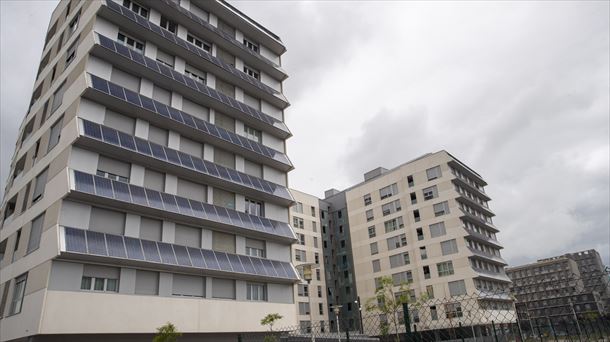A large majority of states call for tackling some countries’ “selfishness” and approve “urgent” measures
The European unit ended this Thursday in a twenty-five against two. Negotiations to cut gas prices across the European Union (EU) pitted Germany and the Netherlands – who refuse such a measure – against the vast majority of the bloc, which is calling for “urgent” gas restrictions.
European leaders expected it to be a long discussion that would continue into the wee hours. As they entered, community leaders called for unity. The President of the European Council, Charles Michel, insisted that “an agreement is possible” in the face of the European energy market that is “not functioning normally”.
For weeks, a bloc of 15 countries has been pushing Brussels to put a limit on all gas imported to the continent. However, the refusal of Germany and the Netherlands prevents any measure to lower the price of this energy.
French President Emmanuel Macron referred to this division between partners and assured that he hoped that the mechanisms that had a “broad consensus” could reach “unanimous” at the meeting.
Already at the informal summit in Prague two weeks ago, several leaders referred to Germany’s “selfishness” following Berlin’s announcement of a $200 billion shield to protect its citizens and businesses. This Thursday, German Chancellor Olaf Scholz pointed out that there are still many open questions about the mechanisms to stop the gas. “The debate is how we can lower prices while having sufficient stocks,” he slipped.
The lack of gas is of particular concern to the countries of Eastern and Central Europe, as they are finding it more difficult to find alternative supply routes. For that reason, Scholz defended on Thursday that a European cap on gas should be coordinated with “other gas consumers, for example Japan and South Korea, so that we do not compete with each other.”
At the other extreme were countries like Spain, which acknowledged that the package of measures proposed by Brussels “falls short”. “We arrived late,” acknowledged Pedro Sánchez. The Lithuanian leader, Gitanas Nauseda, for his part, does not rule out reaching an agreement on a gas limit: “Sometimes these commitments are fulfilled at the last minute,” he stressed.
Also on the table were the rest of the emergency proposals from Brussels, including the obligation for European countries to replenish at least 15% of their gas reserves through joint purchases. It is “absolutely necessary to bundle demand”, defended European Commission President Ursula Von der Leyen a few days ago, who wants to use the weight the block has on the market to curb energy costs.
European leaders also discussed the creation of a mechanism to correct the excessive volatility of the gas market. And in the long term, the EU plans to develop a new benchmark to determine the cost of gas as an alternative to the Dutch TTF, which is currently pushing prices up. With European reserves almost full, energy costs appear to have stabilized, but all member states fear rising costs in the spring, when the refueling season begins.
Source: La Verdad
I am an experienced and passionate journalist with a strong track record in news website reporting. I specialize in technology coverage, breaking stories on the latest developments and trends from around the world. Working for Today Times Live has given me the opportunity to write thought-provoking pieces that have caught the attention of many readers.



